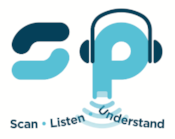Supporting Dyslexia in EAL Students
Did you know that the English Language is one of the hardest languages to learn? It’s really complicated! We don’t have set rules and our phonemes can be pronounced in so many different ways. Apparently Spanish and Hungarian are easier languages to learn because they aren’t complicated. They are ‘transparent’ languages – the pronunciation rules stay the same. English. Nope. Think of ‘ough’. Now think of the different ways it is pronounced – bough, cough, through, ought to name a few. A nightmare.
Because of those difficulties, in education we often see EAL students (English as an additional language), who have no signs of SEN in their native tongue, but who begin to display Dyslexia type difficulties when learning the English language. The issue for us is recognising whether it is an SEN need, such as Dyslexia, or simply limited knowledge of English.
When learning English, there are two stages of learning. Basic Interpersonal Communication skills (BICS) and Cognitive Academic Language Proficiency (CALP). BICS is ‘playground language’, enough to interact socially and get by day to day. CALP is classroom academic language. CALP takes 5 – 7 years!!
BICS can be picked up quite quickly and it’s easy to assume that when an EAL student acquires BICS they are ok. It’s even easier to presume that because a student has BICS they don’t have dyslexia. However, the CALP is the most difficult part, particularly for dyslexia.
So how can we tell? Well assessing for Dyslexia in EAL students is difficult as our diagnostic tests are in English. We could try to translate but that has a whole load of difficulties – ensuring correct translation and the test will have been standardised with a English Native speaking students. How can you be sure the results are because of a learning difficulty rather than having limited English language knowledge?
There are a few tests/assessments available (free and paid for) which help distinguish SEN in EAL students. As part of the assessment process it should also be reviewed whether the difficulties learning EAL are environmental – e.g. poor differentiation in the classroom, not enough time receiving specific EAL support before putting into mainstream.
For older EAL students there are very few/no tests available to identify SEN that can be used to for JCQ Access Arrangements. When I say no tests, I mean there are no tests that don’t require a certain level of English language to access them. JCQ will not award an access arrangement because of limited English language knowledge. They want to be sure that it is because of an SEN need. For this reason we have to show their difficulty isn’t because they have limited English. Not easy.
So, bearing all this in mind, how can you support an EAL student that you think has dyslexia. Well there is good news.
Firstly, for exams you can provide the Exam Reader Pen. This will convert text to speech which will help the student. Hearing the word read aloud will help with comprehension. The Exam Reader Pen requires no online application. It is centre delegated, normal way of working is the only pre-requisite. The pen can also be used in the English Reading Paper. Also consider giving supervised rest breaks. Thinking in a different language is massively tiring cognitively so allow breaks to combat excessive tiredness.
With regard to in-class support there is more good news. Strategies and techniques for supporting EAL are of the same as supporting SEN. So the strategies for supporting EAL with SEN are the same. There are too many to go into here but basically it boils down to……..(don’t hate me) ……differentiation. Or multi-sensory teaching. Using a variety of teaching styles, ensuring information is in different formats, pre-teaching key vocabulary and so on.
When training I always stress that differentiation/multi-sensory teaching will benefit ALL students, not just SEN, EAL, and SEN EAL students. ALL students. Research proves it.
So, when working with EAL students, expect some of them to have SEN even if they didn’t in their native tongue.

